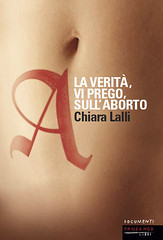 Il 14 dicembre scorso, il Ministro della Sanità del Regno Unito, Caroline Flint, ha annunciato la pubblicazione di un libro bianco (Review of the Human Fertilisation and Embryology Act: Proposals for revised legislation) con le proposte del governo britannico per la riforma della attuale legge sulla riproduzione assistita, lo Human Fertilisation and Embryology (HFE) Act del 1990. Su BioNews di ieri Kirsty Horsey riassume le maggiori novità della proposta governativa («UK Government proposes new laws on assisted reproduction», 17 dicembre 2006):
Il 14 dicembre scorso, il Ministro della Sanità del Regno Unito, Caroline Flint, ha annunciato la pubblicazione di un libro bianco (Review of the Human Fertilisation and Embryology Act: Proposals for revised legislation) con le proposte del governo britannico per la riforma della attuale legge sulla riproduzione assistita, lo Human Fertilisation and Embryology (HFE) Act del 1990. Su BioNews di ieri Kirsty Horsey riassume le maggiori novità della proposta governativa («UK Government proposes new laws on assisted reproduction», 17 dicembre 2006):
One of the major proposals contained in the White Paper states that the ‘need for a father’ clause should be removed from the provisions of the law. Currently, the HFE Act stipulates that fertility treatment providers should take into account the welfare of the potential child to be born, including that child’s need for a father. If the new proposals become law, it would mean that clinics would not be able to refuse treatment to single women or lesbian couples on that basis alone. In fact, it is also recommended that the parenthood provisions within the legislation are to be extended to include civil partners and other same-sex couples. However, the other welfare of the child checks should be retained, says the White Paper, even though this part of the existing law has faced heavy criticism since 1990, mainly because couples who can conceive naturally do not face similar checks or investigation into their suitability as parents.
It is also proposed that Internet sperm donor services be brought within the ambit of the regulation and that the use of sex selection techniques for ‘social’ reasons – either using pre-implantation genetic diagnosis or sperm sorting methods – be formally banned, even for the purpose of ‘family balancing’. Deliberately ‘screening in’ a disease or disorder (for example if two deaf parents wished to have a deaf child) will also be banned, although the screening of embryos for serious genetic diseases, as well as to see if they could be a tissue match for an existing sick sibling, will continue to be permitted under licence. However, in terms of embryo research, the creation of chimeras will be banned, at least initially, although scientists will be allowed to alter the genetic structure of reproductive cells – though they will be banned from implanting such an embryo created using these into a woman in order to make a baby.
In relation to the use of donor sperm, eggs and embryos, no changes are proposed to the law – which was last changed in 2004 anyway – on the anonymity of donors. In fact, some of the recent changes are to be incorporated into and developed within the new law: donor-conceived children will be allowed to find out the name of their donor and also if they have sisters or brothers also conceived through donation, when they reach the age of 18. Donors will be informed if a donor-conceived child is seeking identifying information about them.
Following from some recent high-profile cases, such as that taken by Natallie Evans, the statutory storage period for embryos is to be extended from five to 10 years, while a ’cooling off period’ of up to one year will be put in place if consent to embryo storage by one of the couple involved is withdrawn.


























Nessun commento:
Posta un commento